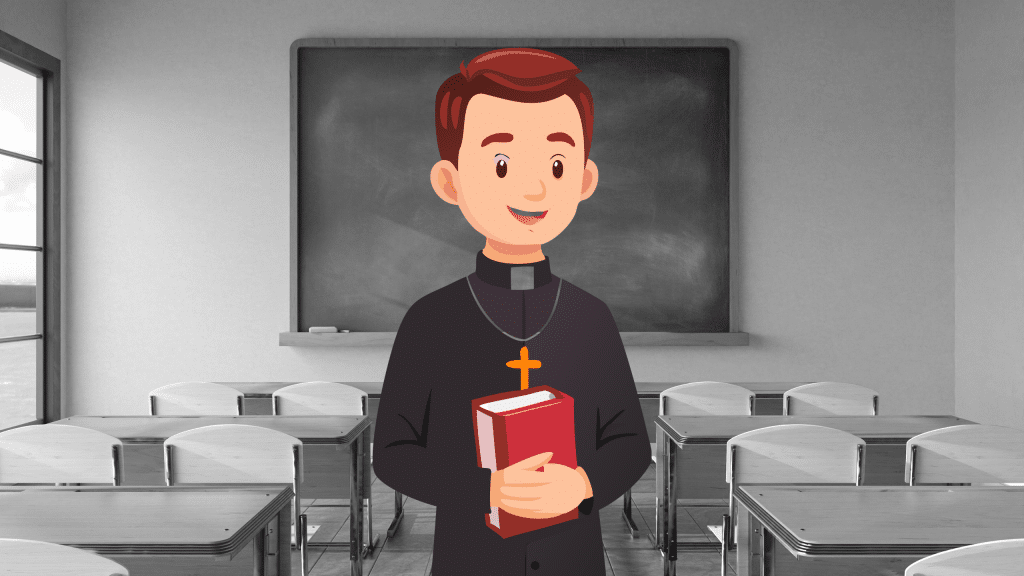A committee in Ohio’s Republican-controlled House of Representatives held its first hearing on a bill that would allow public schools to “engage volunteer chaplains to provide support services,” without defining those support services in any way.
HB531 The (“School Chaplains Act”) was introduced last week, assigned to the Education Committee the next day, and received sponsor testimony on Tuesday.
The bill defines a chaplain as “a person in a religious profession who has been endorsed or certified by a recognized ecclesiastical endorsing agency and who provides spiritual programs, support, and counseling outside the traditional church setting.”
Sponsor certificate
The bill is co-sponsored by Rep. Kevin Ritter (R-Marietta), co-founder private Christian school in the central Ohio Valleyand Jonathan Newman (R-Troy), megachurch pastor. Both Ritter and Newman testified in support of their bill.
Ritter said the bill aims to support the needs of Ohio’s youth “intellectually, emotionally and spiritually.”
“House Bill 531 aims to offer schools one more way to meet these needs — through trusted adults who are trained to listen, encourage students and help them build character and resilience,” Ritter said.
Ritter also testified that the bill does not promote any religious tradition.
“It simply gives schools the flexibility to work with qualified people who can support students’ personal development in a way that is consistent with local values and constitutional guarantees,” he said.
Although the text of the bill only refers to chaplains working as volunteers in schools, in his testimony – both written and oral – Ritter stated that the bill “enables public schools, including school districts, community schools, and STEM schools, employ or involve school chaplains.”

Newman testified that schools are the “first line of defense” for students’ mental health issues and that “schools should play a key role in developing moral character, not just academic ability.”
“Chaplains promote empathy, respect and responsibility through their supports, services and programs,” Newman said. “Their influence goes beyond individual interactions, supporting a culture of kindness and integrity.”
To justify his bill, Newman cited that George Washington placed chaplains in the newly created navy.
“Since then, chaplains have served in all branches of the armed forces, as well as in the United States Senate and House of Representatives, beginning in 1789.” Newman said in his written testimony.
Rep. Sean Brennan (D-Parma) asked the bill’s co-sponsors to spell out exactly what these chaplains would be authorized to do in schools. No specific answer was given.
“We left that decision up to the local school board [those] programs and services,” Newman said.
Rep. Joseph Miller (D-Amherst) noted that the bill would force all school districts in Ohio to vote by December 1, 2026 on whether their schools would accept a volunteer chaplain. He asked if sponsors would be willing to change the language to make voting optional, as he believed that was the norm on other bills.
Rep. Newman reiterated that while the bill requires school districts to vote on the presence of volunteer chaplains in public schools, it does not actually mandate the employment of chaplains in schools. He did not explain why the bill requires voting in all districts.
Rep. Newman also confirmed that background checks will be required for all school chaplains.
A second hearing on the school chaplaincy bill has not yet been scheduled.
A similar bill was introduced in the Ohio Legislature in 2023 but was never considered. Similar bills have been passed in Texas and Florida have been introduced in 12 other states. 🔥
START ACTION
- You can find the makeup of the House Education Committee Here.
- Ohio’s 2025 Buckeye Flame LGBTQ+ Legislation Guide can be found here.
- To register to vote or check your eligibility to vote in Ohio, click here.
- To find the contact information for your Ohio State Representative, click here.


